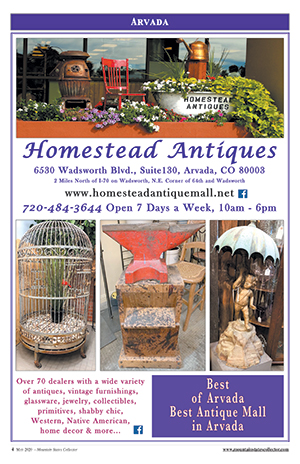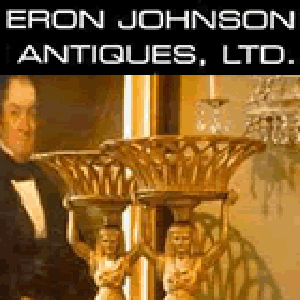When you think of the word “antique” – is it daunting? I know it was for me when I started in the antique industry. There are so many kinds of antiques and so much to learn – it was completely overwhelming. I can see why a lot of young people just buy new, it’s easier and less confusing, but is it better? I see a lot of reproductions of antiques in the mall. There is an upscale store in the mall that I once worked in and during my breaks, I would shop around and be amazed at the price of the reproduction Asian sideboards, with their faux patina of 100’s of “years” – and reproduction antique décor – they were also MORE than the price of the real thing that I knew was down on Antique Row in Denver, Colorado.
Are you secretly interested in antiques but don’t know where to start? Here’s a great tip that someone really smart in the industry told me one day and it changed everything for me. When you look at something that you are going to potentially collect, look at it and take away in your mind the fact that it is an antique. Just look at it – do you like it? You have to like it. REALLY like it. Antiques (and vintage items) are kind of like real human friends in your life. If it brings you joy and stirs your imagination and makes you feel good just by looking and thinking about it, you have found something really good to have in your life.
We appreciate and collect antiques for many reasons. Some of us appreciate most the fact that antiques increase in values over time. Some of us collect antiques for the pleasure of finding them, the thrill of the hunt. Some feel pride in owning and preserving them for the future. And we all value the sense of belonging to a group with a common interest in antiques. Going to conventions and trade shows and being surrounded by people with similar interests is really fun.
Everyone in the antiquing world gains pleasure from recognizing the significance of antiques. Antiques are a living record of the values of past generations. We are amazed how old objects were once designed, crafted, manufactured, distributed, sold, and used. The skill and devotion of craftsmen at work in workshops and cottage industries inspire a love of antique objects. The satisfaction an old object brought someone fifty or a hundred, or even several hundred years ago comes alive. Things just aren’t made today like they once were.
What is an “antique?” In the industry, we consider the word antique appropriate to apply to anything over 100 years of age. There are so many kinds of antiques. Some are focal points of living spaces and some become unearthed after long periods of time – like found in a trunk in an attic. Looking upon an old object that was stored away decades ago and forgotten and seeing it once again stirs our imagination. As an appraiser, we can sense the tenderness ancestors had in saving something for many generations. We experience what they felt long ago and recognize the universality of the human condition.
Antiques sometimes suffer a cruel fate, but they often have an uncanny power to survive the misfortunes of time – and that is one of the things I love about them. We see the beauty of an object hidden beneath the dirt accumulating for years. I work in a doll shop and sometimes, the most fantastic dolls come to me covered in dirt – and the person bringing them in thinks this decreases their value. Sometimes a gentle cleaning will restore antiques (and dolls) to a very good condition – they look fresh and “new.” There’s no denying that it’s love at work saving antiques.
The pleasure of collecting antiques often derives from personal experience and is enhanced in many ways over time. A person may have a fond memory for an object and attempt to find it in an antique shop. The sought after object may actually awaken an interest in a more general area. For example, in my industry, we help a lot of people find dolls they once had. Discovering that favorite doll you once owned as a child only to realize the significant role the doll played helping to look forward to a better future and preparing for it. Remembering all the adventures you had with that doll, all the rough times the doll saw through with you. We now see the importance of dolls in society. This often ignites in people the love of doll collecting and they then decide to become a collector of dolls, visiting doll museums, reading books about dolls, and joining doll clubs. Anything I can do as a young professional in this industry to enhance this enthusiasm, I do.
All collectors are motivated by individual needs and desires. They are also influenced by market conditions such as availability and affordability of items. Some collectors begin collecting one kind of antique and continue to collect that kind only. Other collectors find their interests become more specific and devote themselves to a narrower field of antique collecting. Some people collect everything. It’s whimsical and fun to see someone enjoying their collecting.
One of the best things about collecting is sharing your collections with others. Generous collectors lend their collections to museums for special exhibits or special events within in their home. This is one of the greatest gifts you can give – sharing your passion with others. Collectors are the keepers of family legends, learning the stories about and the provenance of what they have. Antique collectors often bring others as much joy as they themselves experience in the hunt for the precious and rare old objects.
I encourage you to think about what you love. What having around you makes you feel GOOD and start there. As you collect pieces of information and objects, keep your heart open to possibility. Those moments when you find a treasure that speaks to you are very special. As you collect, think about the reasons why you like that certain piece. Remember, in life, none of us own something really special – we just take care of them for a while.
To read other articles or for more information about Rachel Hoffman’s appraisal practice, visit her website at www.rachelhoffmanandassociates.com or email her at rachel@rachelhoffmanandassociates.com
















Follow Us